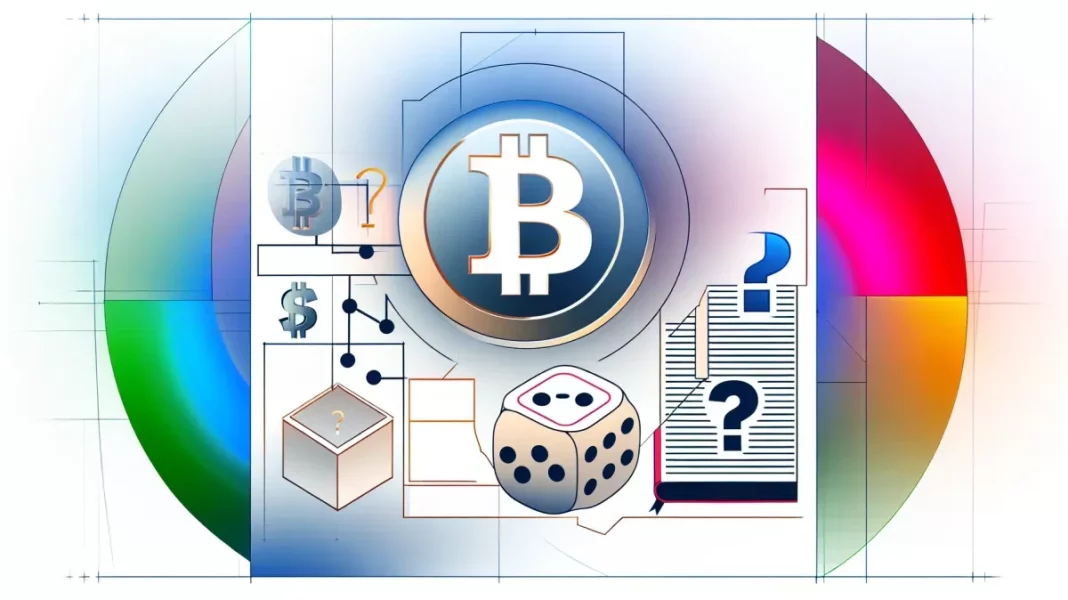In the fluctuating realm of online cryptocurrency gambling, a fervent conversation continues to percolate around the foundational principles of fairness, user security, and legal protocols concerning user disputes. As the intersection of Bitcoin and digital gaming continues to mature, stakeholders are drawing their lenses to focus sharply on one chief concern: How are disputes in the Bitcoin gambling arena managed, and what mechanisms are in place to ensure a fair resolution process?
Understanding the Ecosystem of Bitcoin Gambling
Bitcoin gambling operates on the innovative blockchain technology that underpins cryptocurrencies, lending the industry a decentralized and oftentimes, a deregulated facade. This transformation from traditional online casinos to blockchain-based platforms promises benefits like enhanced transparency, improved security, and immediate transactions. However, with these disruptive features come the complexities of navigating legal landscapes that vary widely across geographical boundaries.
The Nature of User Disputes in Bitcoin Casinos
User disputes within the Bitcoin gambling sphere can arise from a multitude of scenarios. They range from the more typical concerns around withdrawal delays or bonus disagreements to highly technical issues like irregularities in smart contract executions or game outcome discrepancies caused by software malfunctions.
In traditional online gaming, licensed casinos are mandated to offer dispute resolution services, often through third-party providers or regulatory body interventions. However, in the world of Bitcoin gambling, where casinos can operate without a centralized authority, the assurance of impartial dispute resolution isn’t always a given. This autonomous status of Bitcoin casinos raises the question: How can players protect themselves, and what systems are in place to handle their concerns?
Legal Mechanisms and the Role of Regulatory Bodies
It’s worth noting that some Bitcoin gambling sites voluntarily seek licensing from gaming jurisdictions like Curacao, Malta, or the Isle of Man, which require the integration of dispute resolution mechanisms as a part of their licensing agreements. This move towards self-regulation offers a semblance of legal oversight, providing players with a sense of security and a defined pathway to solve their grievances.
In instances where Bitcoin casinos are regulated, the licensing authority typically provides a mediation service or requires the casino to have an internal process for dispute resolution. However, because Bitcoin operates outside the scope of traditional financial systems, these regulatory frameworks may not be as robust when matched against those governing fiat currency casinos.
The Role of Provably Fair Technology
An intriguing and unique solution brought by Bitcoin gambling to the dispute resolution table is ‘provably fair’ technology. This cryptographic technique allows players to verify the fairness of each bet or game outcome, ensuring transparency and building trust between the user and the operator. In an ideal scenario, the implementation of this technology could significantly diminish the volume of disputes based solely on fairness claims.
Resolving Disputes: The Path Forward
When disputes do arise, players are often first instructed to address their grievances directly with the casino’s customer support team. Most user disputes are resolved at this level, with customer service representatives empowered to address concerns and offer resolutions within the platform’s terms of service.
However, should a dispute escalate, the options for resolution can become convoluted in the absence of a regulatory authority. Some Bitcoin gambling platforms may provide access to an impartial mediator or an arbitrator who specializes in cryptocurrency disputes, though this practice is far from industry-standard.
On the horizon, concepts such as decentralized autonomous organizations (DAOs), which could theoretically manage dispute resolutions through community consensus, are being explored. Additionally, industry coalitions and third-party services are emerging to offer dispute resolution services, analogous to traditional gambling arbitration services.
User Responsibility and Advocacy
In this dynamic landscape, it’s crucial for players to conduct due diligence before engaging with any Bitcoin gambling site. Potential players should seek out platforms that explicitly detail their dispute resolution processes, have reputable licensing, and adopt provably fair mechanisms.
Player education and advocacy groups are also pivotal in enhancing user protection. By sharing knowledge and experiences, these collectives can pressure operators to adopt fair practices and work towards more comprehensive regulation in the industry.
The Path Ahead: Integration of Legal Frameworks and Technology
Looking forward, the harmonization of legal frameworks with innovative technologies like blockchain holds the key to developing a mature, reliable, and user-focused Bitcoin gambling environment. Legislators and industry leaders alike have the joint responsibility to carve out standardized practices that safeguard players while nurturing the growth of this nascent sector.
A Universal Call for Responsible Evolution
As Bitcoin gambling continues to captivate enthusiasts and skeptics alike, the maturation of dispute resolution mechanisms remains a cornerstone for the industry’s legitimacy and survival. The cooperative interaction between regulation, technology, and community engagement will be the bedrock on which the future of Bitcoin gambling user dispute resolution solidifies – a future that promises fairness and security in the digital age of gaming.



